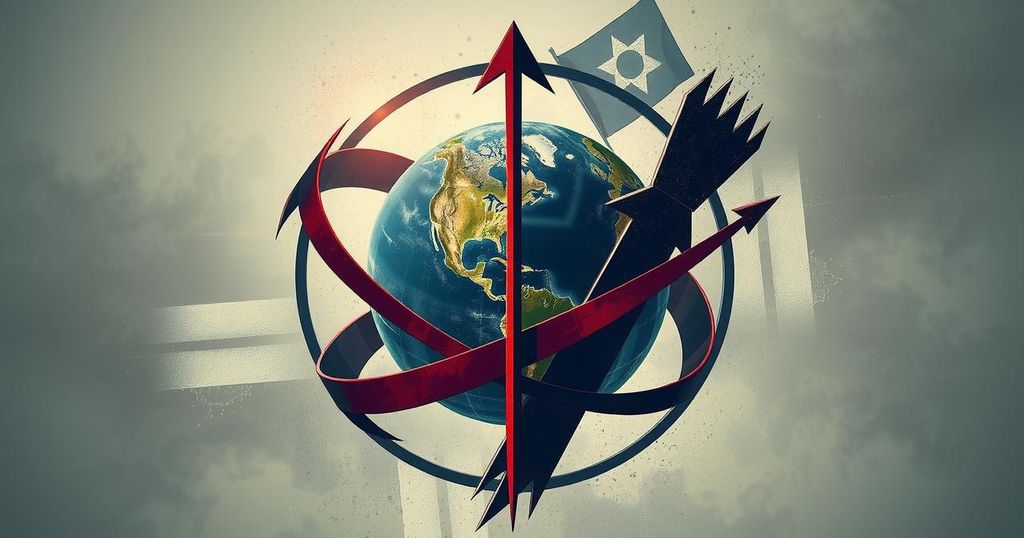World news
ASIA, BIDEN ADMINISTRATION, DEFENSE, DONALD TRUMP, ENERGY INFRASTRUCTURE, EUROPE, EUROPE/ASIA, KOREA, NORTH, KURSK, MILITARY, NATIONAL INTELLIGENCE SERVICE, PYONGYANG, RUSSIA, TRUMP, UKRAINE, US DEPARTMENT OF DEFENSE, US DEPARTMENT OF STATE, US NATIONAL SECURITY COUNCIL, WAR, WEST
Oliver Grayson
0 Comments
The Mysterious Withdrawal of North Korean Soldiers from Ukraine Conflict
North Korean troops in Russia’s Kursk region have reportedly withdrawn from the Ukraine conflict amid high casualties. Their retreat coincided with the inauguration of President Trump, sparking speculation about future deployments. As misinformation complicates the narrative, the situation highlights the strategic interests of North Korea and Russia amid changing political landscapes.
Recent reports indicate that North Korean soldiers previously stationed in Russia’s Kursk region have seemingly withdrawn from the conflict in Ukraine following significant casualties among their ranks. Ukrainian military officials estimate approximately 11,000 troops have retreated, with claims that up to 40% have been killed, captured, or injured. Despite this, there is speculation that North Korea may reinforce its forces for future deployments.
The involvement of North Korean troops in Ukraine has been a contentious subject, confirmed by South Korea’s National Intelligence Service in October 2024. Their withdrawal aligns closely with the inauguration of U.S. President Donald Trump, who has advocated for an expedited conclusion to the conflict. This timing suggests a possible link to negotiations between North Korea and Russia aimed at easing tensions during Trump’s potential return to office.
Both North Korea and Russia have not officially acknowledged the troops’ deployment, yet they have leveraged the situation to enhance their negotiating position against the U.S. The ambiguity surrounding troop movements has complicated the narrative, particularly as the U.S. administration has refrained from addressing the issue publicly. Consequently, Ukraine finds itself in a diminished propaganda position.
Ukraine has relied on disseminating reports regarding North Korean involvement to bolster Western support, as seen in the responses from South Korea, especially under President Yoon Suk-yeol. Despite claims backing the presence of North Korean soldiers, much of the purported evidence has proven to be fabricated, undermining Kyiv’s stance as it has opted for political gain over collaboration with South Korea.
Former Secretary of Defense Lloyd Austin stated that he had “not seen significant reporting” of North Korean troops being engaged in combat, contradicting earlier claims from various outlets reporting on their activities. Misleading narratives, including exaggerated claims of casualties and questionable visuals, have clouded the situation. Thus, legitimate concerns regarding troop deployment have been obscured by misinformation.
As time has progressed, the political landscapes in both the U.S. and South Korea have shifted dramatically. The change in leadership and the impeachment of President Yoon have further diluted the impact of these narratives. The persistence of misleading information regarding the deployment of North Korean troops complicates the understanding of their actual status on the battlefield.
Ultimately, the fate of the North Korean soldiers remains uncertain. Regarded variably as expendable forces or esteemed combatants, their presence continues to elicit questions about future deployments and military strategy in the ongoing conflict.
The article discusses the reported withdrawal of North Korean troops stationed in Russia’s Kursk region and examines the implications of their involvement in Ukraine. It situates these developments within the larger geopolitical landscape, particularly concerning U.S.-North Korea relations and the shifting dynamics following the inauguration of President Trump. Furthermore, the narrative explores the influence of propaganda and misinformation regarding the presence and role of these troops, particularly in the context of Ukraine’s military strategy and South Korea’s political situation.
The withdrawal of North Korean soldiers from Ukraine raises questions about future military engagement in the region. As misinformation has clouded the actual circumstances, both North Korea and Russia seek to navigate the diplomatic challenges posed by their roles in the conflict. With evolving political conditions, understanding the reality of North Korean military involvement has become increasingly complex.
Original Source: english.hani.co.kr




Post Comment